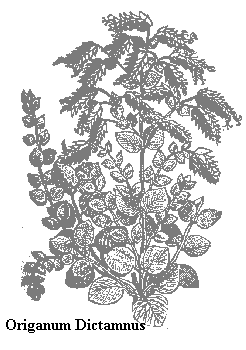The economy of Crete which was mainly based on farming started changing visibly during the 70's. While there is a still an emphasis on farming and stock breeding , due to the climate and the terrain of the island, there is a drop in manufacturing and a big increase on the services industry (mainly tourism related).
| Employment density | % |
| production | 37.9 |
| processing/packaging | 12.3 |
| services | 49.8 |
| total | 100 |
All three sectors of the Cretan economy (agriculture, processing-packaging, services), are directly connected and interdepended. Crete has an average per capita income which is close to 100% of the Greek average. Unemployment is at approximately 4%, half of that of Greece.
The most dynamic sector of the Cretan economy is
tourism. The excellent climate of the island, the beautiful landscape along with the remarkable tourist resorts, attract as many as 3.000.000 visitors every year.
Today the tourism infrastructure in Crete caters to all tastes. There is accomodation of every possible category , from large luxury hotels with all the facilities (swimming pools, SPA, sports and recreation facilities etc.), to smaller family owned apartments, to camping facilities. Visitors can arrive to the island through two international airports in Iraklion and Hania, or by boat to the ports of Iraklion, Hania, Rethimno and Agios Nikolaos.
Crete is also known for the quality of its
agricultural products that, due to the good climate, are produced all year around. These include olives, grapes, horticultural products, potatoes, oranges etc.
Most of the land cultivated consists of small farms cultivating traditional products. Starting in the 60's, and due to the temperate climate of the island, there was a big increase in cultivating in greenhouses. The main products that are currently being exported in the Greek and international (particularly European) Market are:

- Raisins (sultanas)
- Wine is a traditional product of Crete, whose production going back to 2000 B.C.. This is demontrated by the remains of ancient vinification plants unearthed by archaeologists, the oldest being the one in Vathipetro close to the city of Iraklion.
- Olives and olive oil. These have also a very long tradition of cultivation in the island.
- Fresh fruit (mainly grapes, citrus fruits, tangerines, melons, water melons, kiwis, avocadoes and bananas).
- Fresh horticultural products (mainly cucumbers, tomatoes, potatoes, pumpkins, egg-plants, pepers, beans).
- Honey
- Pharmaceutical and aromatical plants and herbs (oregano, dictamus, mint, thyme, laudanum).
Stock breeding has traditionally played, an extremely important role to the life of the Cretans, and still does. In the Cretan plateaus sheep and goats are bred for their milk, wool and meat. The Cretan cheeses, especially Gruyere (Graviera), and "anthotiros" are famous for their quality and distinctive taste. Another occupation for quite a few Cretans is fishing. Although the quantity of fish in Crete is limited the quality is generally very good.
There are several "spin-off"
industries involved with the packaging and shipping of these products. Other industries operating on the island are involved with excavation and processing of marble, production of plastics, farming machinery etc..
The sector of
real estate and building is also very active and there are some industries producing ready mixed concrete, bricks and other building stuff.
Crete has a flourishing
commercial activity. There are a lot of shops that cater to the tastes and demands of both the locals and the tourists that visit the island every year. There is also the potential for cooperation with foreign companies , from companies whose products can get a high demand in the markets abroad. These include , but are not limited to, leather goods, jewellery, furniture, paints, building material and equipment, medical equipment.
Find related pages...: Business dir.